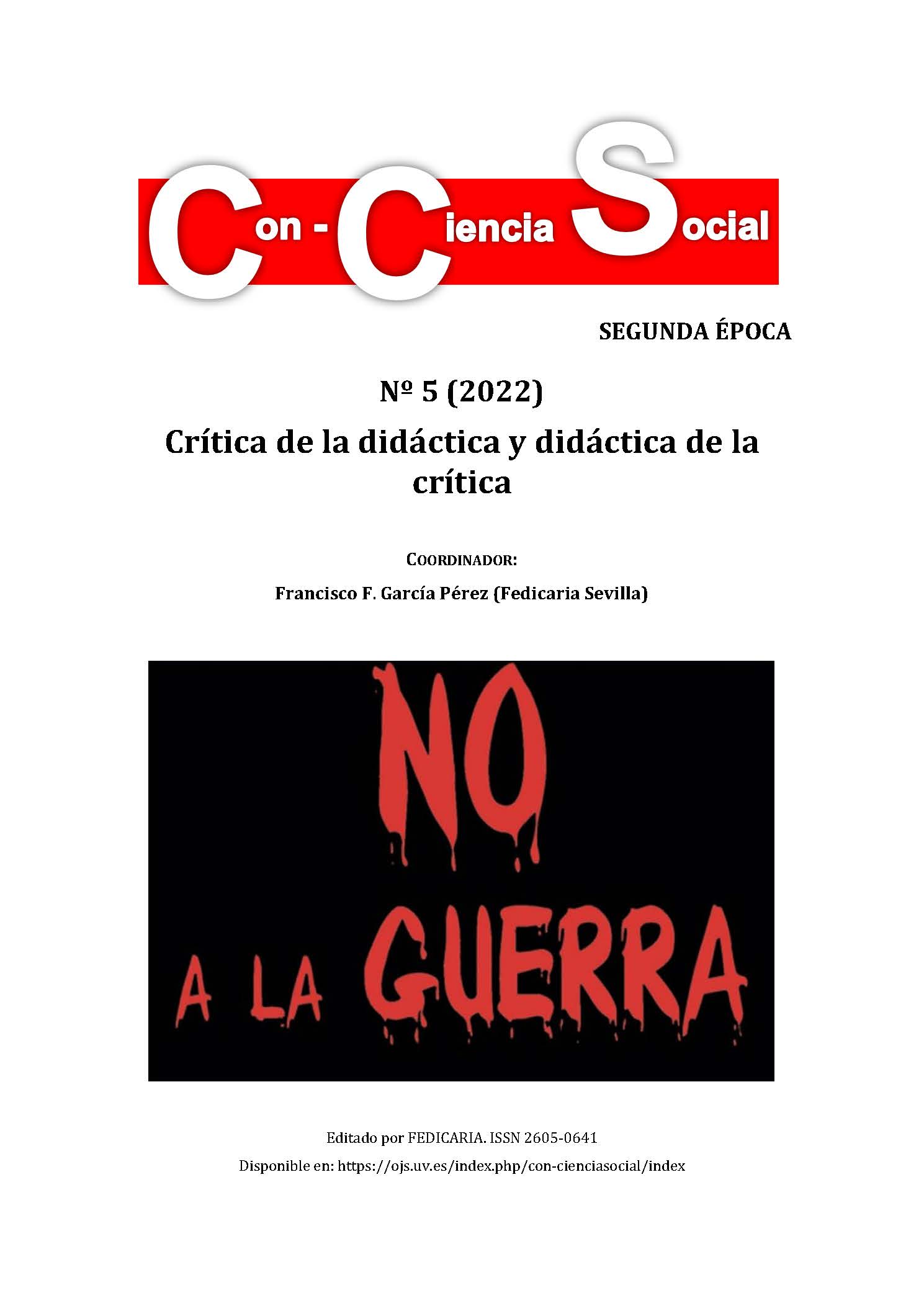A lot of things are hidden under the past of a high school in a provincial town
DOI:
https://doi.org/10.7203/con-cienciasocial.5.24274Keywords:
modes of education, traditional baccalaureate, baccalaureate professors, Huesca Secondary School, knowledge-power Abstract
Abstract
A work by Juan Mainer, to which this article is dedicated, was published at the end of 2020. The title Consagrar la distinción. Producir la diferencia. Una historia del Instituto de Huesca a través de sus catedráticos (1845-1931), already gives us concentrated and very precise information on the subject treated, and even points out the author's motives and intentions. Here we deal with these aspects and comment on the genealogical and critical perspective adopted by the author to reveal the framework of a typically provincial historical and social construction, a Secondary School, which, together with its homologous establishments, contributed to the genesis of the modern state in Spain. The critical look uncovers a complex, broad and detailed map of knowledge-power relations related to the Institute itself, to the city of Huesca and to the professors of the Huesca Secondary School in the period studied. A period linked to a traditional and elitist mode of education. An attempt has also been made to make an overall assessment of this complex and extensive work by drawing attention to its social dimension; to the classist and selective past that left women and the working classes out of that education and, moreover, a large part of the majority of the population that lived in the villages.
 Downloads
Downloads
Downloads
Published
How to Cite
-
Abstract129
-
PDF (Español)50
Issue
Section
License
![]()
Los contenidos de Con-ciencia Social están protegidos por una licencia Creative Commons del tipo Reconocimiento-NoComercial-CompartirIgual 3.0 Unported.



